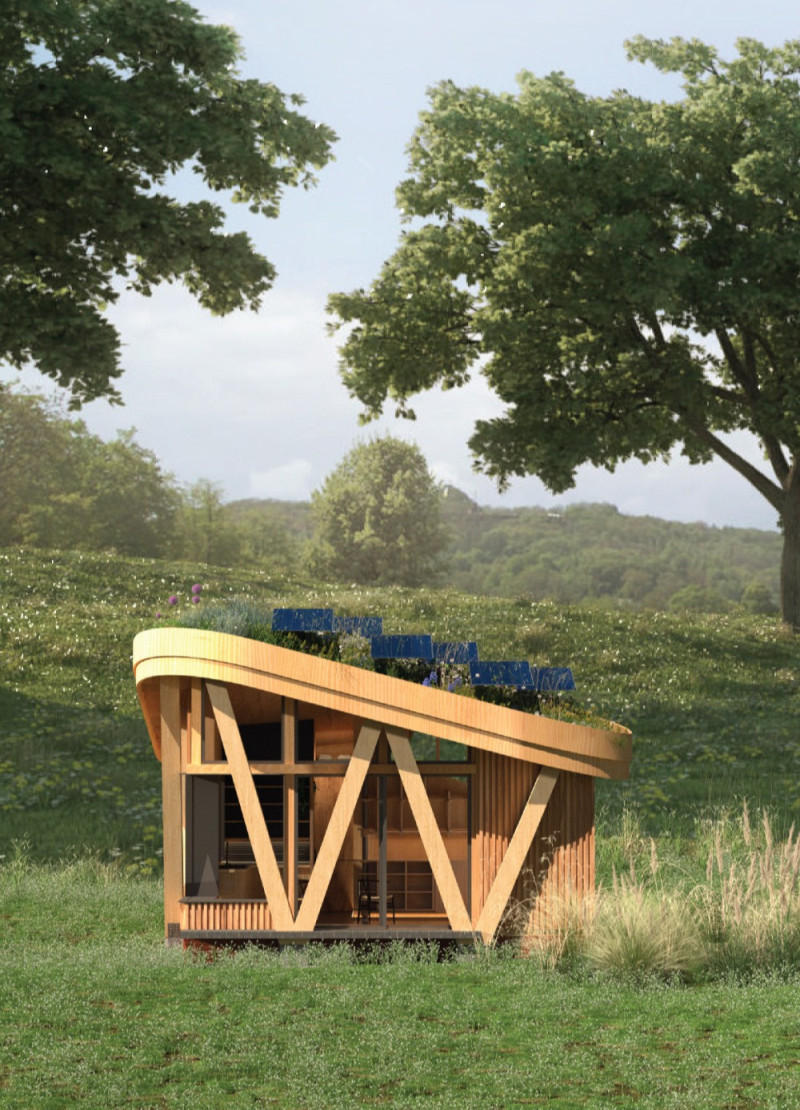5 key facts about this project
The Cocoon project is a thoughtful design created to respond to the challenges of coastal cities in the year 2030. With rising sea levels and more frequent extreme weather events, it focuses on resilience and sustainability in urban living. The concept integrates energy-efficient systems and connects to sustainable urban drainage systems (SUDS), highlighting an effective approach to contemporary urban issues.
Design and Functionality
The form features a biosolar roof that combines photovoltaic panels with a green roof. This setup generates renewable energy and creates microclimates, which support local biodiversity. The angled roof design allows for natural light while maintaining privacy. It adapts well to its environment and facilitates a pleasant living experience.
Adaptive Spatial Configuration
Inside, the design encourages flexibility with a rotary mechanism that allows for various spatial arrangements. This solution provides options for different functions, supported by extendable furniture that increases usability. Each space can serve multiple purposes, reflecting a modern lifestyle where adaptability is essential.
Environmental Strategy
The Cocoon incorporates an environmental strategy focused on making efficient use of resources. A green roof acts as insulation, enhancing thermal performance while reducing the need for mechanical heating and cooling. The design includes a water treatment cycle that recycles greywater, demonstrating an advanced approach to resource management that is vital for sustainability.
Natural Climate Control
Elements of the design promote natural climate control. The extended overhang of the biosolar roof blocks the sun's high rays in summer, while the elevated glazing allows the lower winter sun to warm the interiors. This careful planning minimizes energy use, supporting an efficient living environment.
Combining these design elements creates a dwelling that balances human needs with ecological awareness, offering a vision for future urban living that is both practical and sustainable.




















































